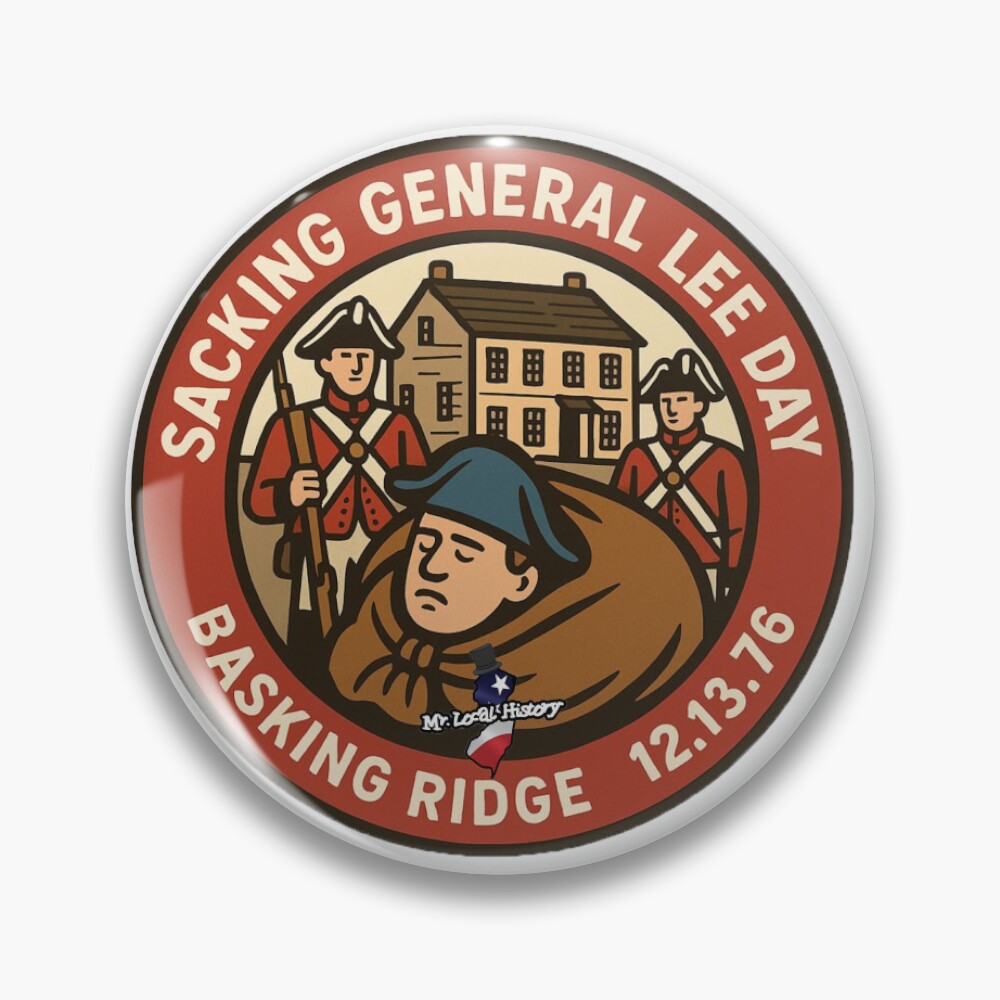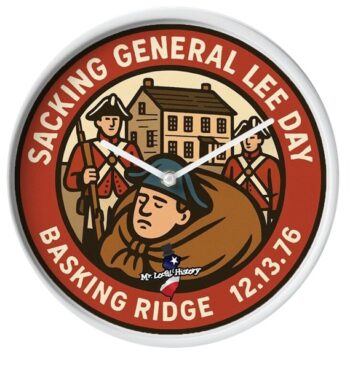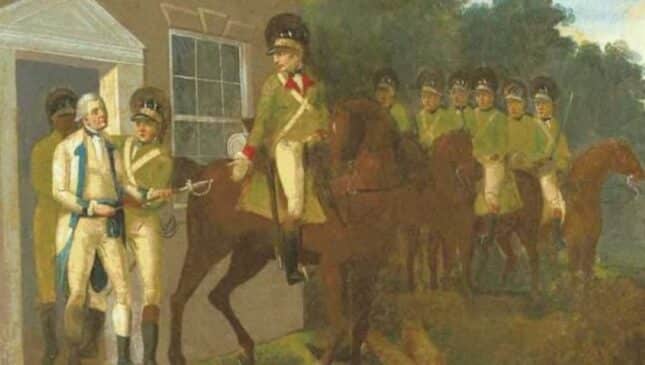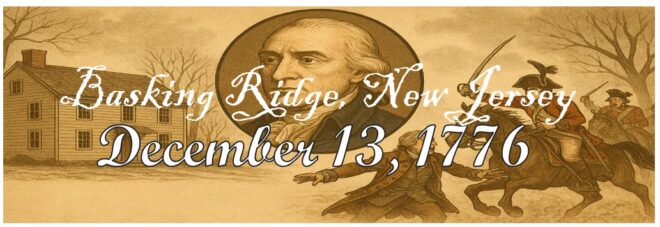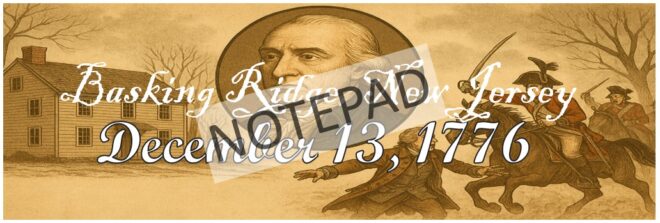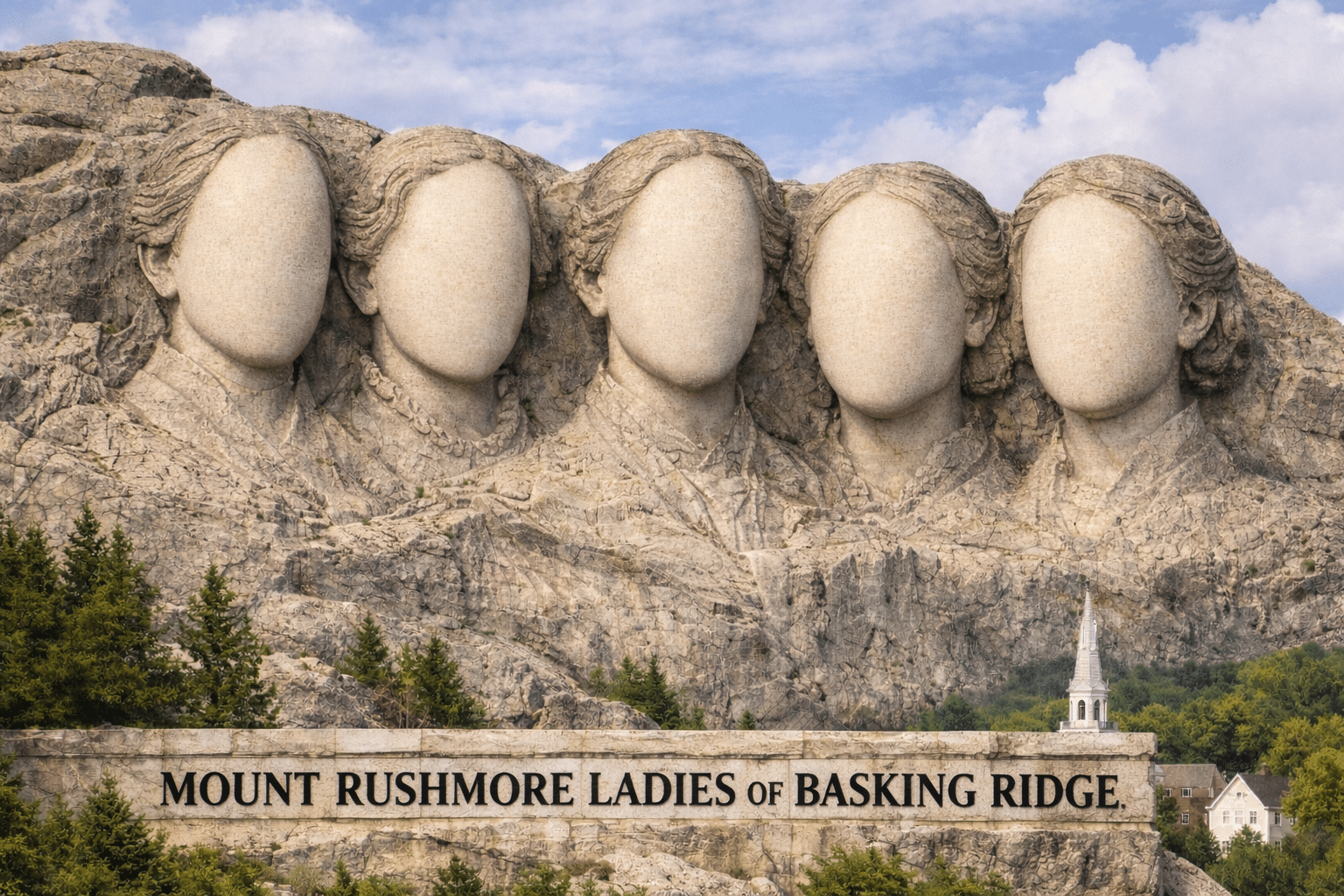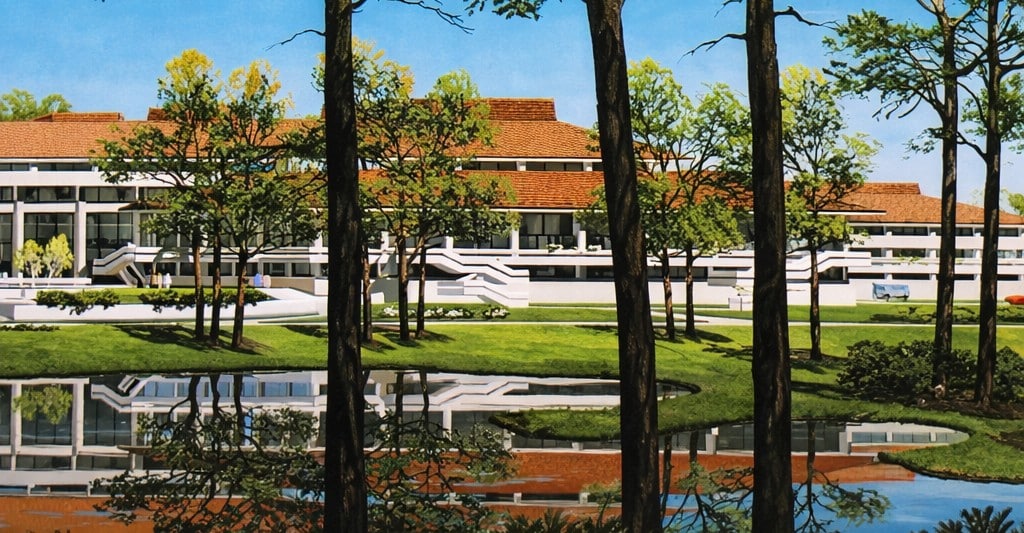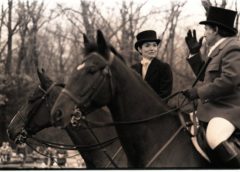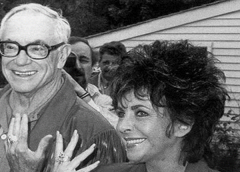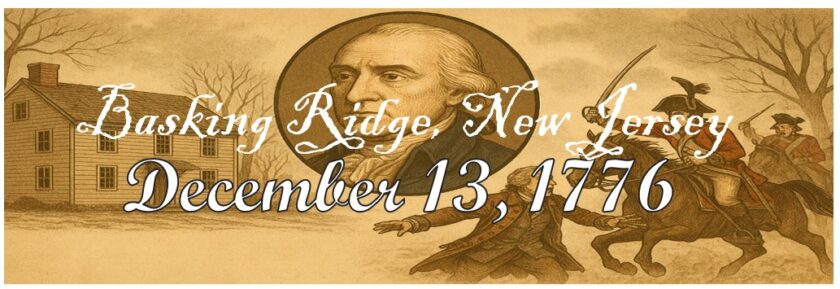
The world might have had a different look if it weren’t for this day’s event.
December 13, 1776 in Basking Ridge, New Jersey.
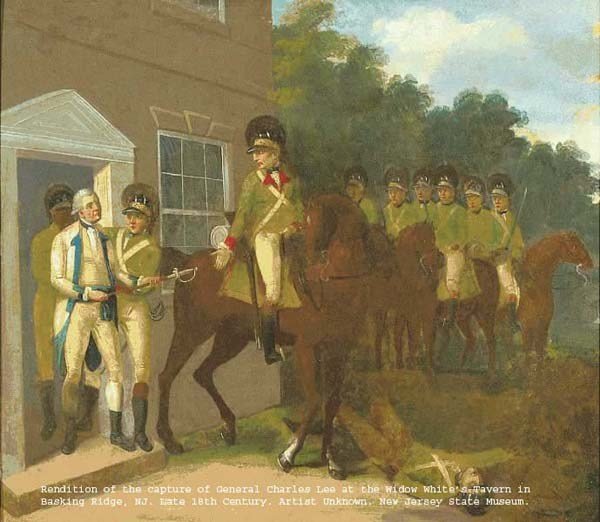
Source: NJ Museum
Basking Ridge, New Jersey’s most famous incident, occurred on December 13, 1776, at about noon. General Charles Lee (1731-1782) was “alarmed” by Major Wilkinson while writing a letter to General Gates about George Washington in an upstairs bedroom of the Widow White’s Tavern. Widow White’s Tavern, named after Ebenezer White’s wife, Mary Brown White, became the centerpiece of Revolutionary War history on that day because It was on this most unfortunate day for General Lee that General Lee became a prisoner of the British Army, leaving General Washington.
It was General Charles Lee vs. General George Washington until Basking Ridge Happened
There was no secret that General Charles Lee had disdain for General Washington. General Charles Lee, who had been captured in Basking Ridge on December 13, 1776, was held by the British as a prisoner until exchanged in 1778. He remarked, “Washington is not fit enough to command a Sergeant’s Guard.” Washington attempted to secure Lee’s release through a prisoner exchange, but he had no captives of similar rank with which to bargain, and Lee remained in British custody for almost 18 months. Based on the capture, no one from Congress was willing to back Lee to lead the Continental Army, and the position remained with General Washington.
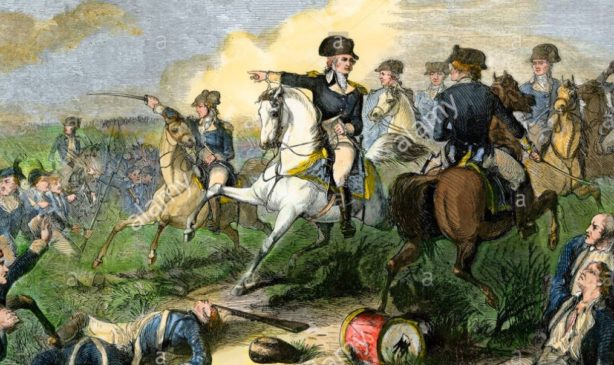
During this time, Lee appears to have wavered in allegiance to his adopted country. In 1858, a document titled “Mr. Lee’s Plan, 29th March 1777” was discovered; it advised Howe on how to defeat the Continental Army. Until his death, Lee expressed animosity toward Washington as a “puffed-up charlatan.” In his last will, Lee asked that he not be buried in a churchyard. “I have kept so much bad company when living,” he wrote, “I do not choose to continue it when dead.” Despite these wishes, Lee was buried at the entrance to Christ Church in Philadelphia. If you are in the area, pay Charles a visit and give him a big “thumbs down.”
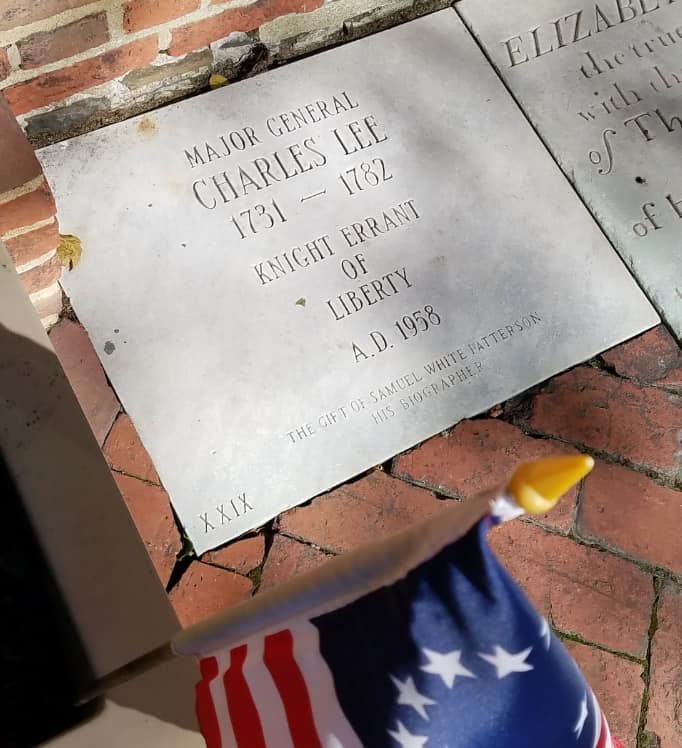
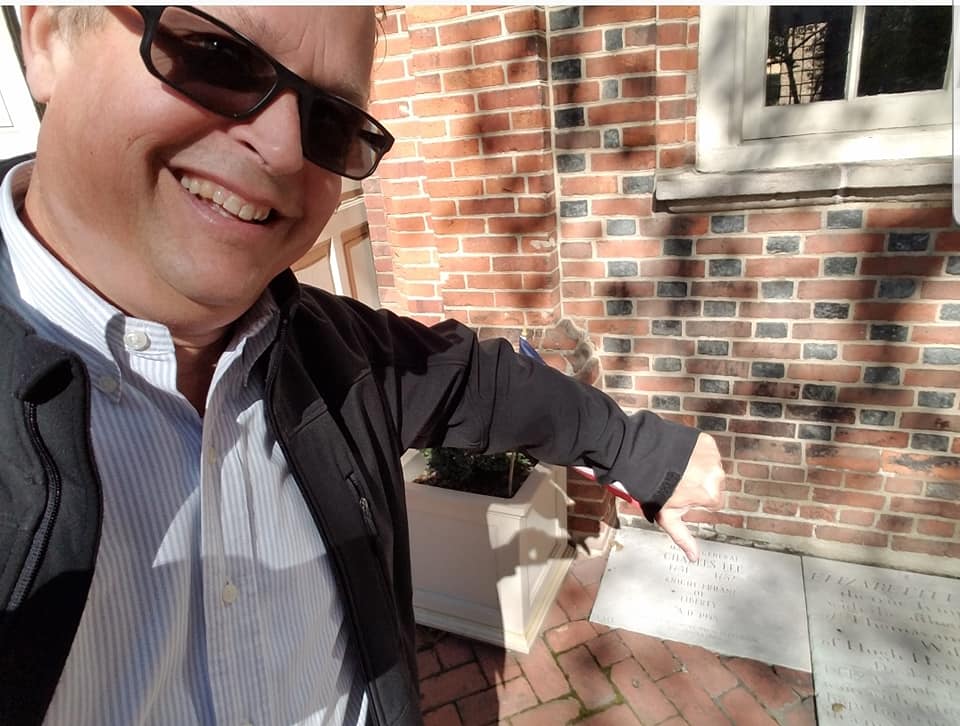
Widow White’s Tavern
Suppose the British hadn’t discovered that General Lee was at the Basking Ridge tavern. In that case, he might have been able to sway the Continental Congress to select him as the Continental Army’s primary General. Washington would have had to serve as a subordinate. Lee would have most likely retreated (as he did from the Battle of Monmouth), and as they say, the rest would have been history.
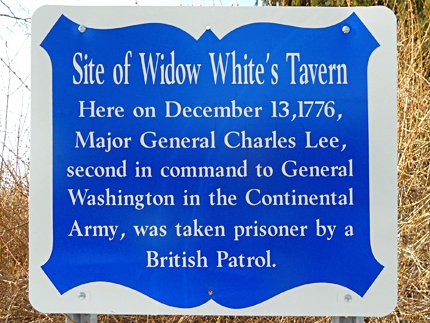
Cat’s Meow Keepsake Honors White’s Tavern
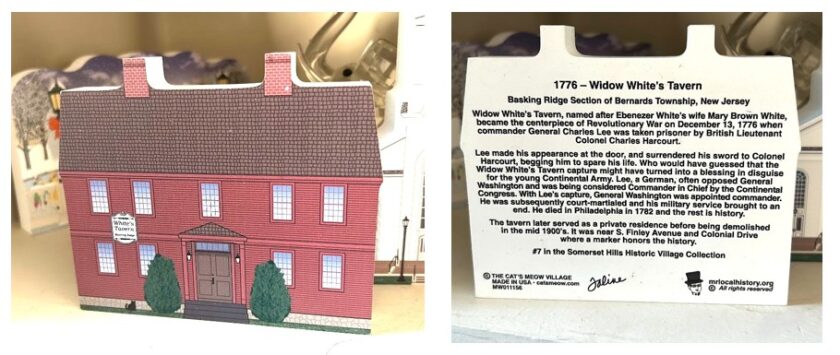
Think About It for a Moment……
When Charles Lee was captured on December 13 1776 in Basking Ridge, his main body of troops was not captured with him. Most of his command was camped and quartered around Vealtown (Bernardsville) and nearby northern New Jersey towns. With Lee gone, Major General John Sullivan took over and immediately focused on pulling the scattered regiments together and getting them moving to Washington as fast as possible.
Sullivan drove the column west to the Delaware River and crossed into Pennsylvania at Easton on December 16 and December 17. From there they marched to Bethlehem on December 18, passed through Springfield Township in northern Bucks County on December 19, and arrived late on December 20 in Buckingham Township a few miles west of Coryell’s Ferry, essentially joining Washington’s camp in the Delaware River corridor.
Lee had commanded roughly 3000 men on paper earlier in that period, but by the time Sullivan delivered the division to Washington on December 20 the number had shrunk to about 2000, with many men exhausted, sick, or otherwise unfit after the hard march and expiring enlistments. Those troops helped rebuild Washington’s army in the days immediately before the Trenton operation.
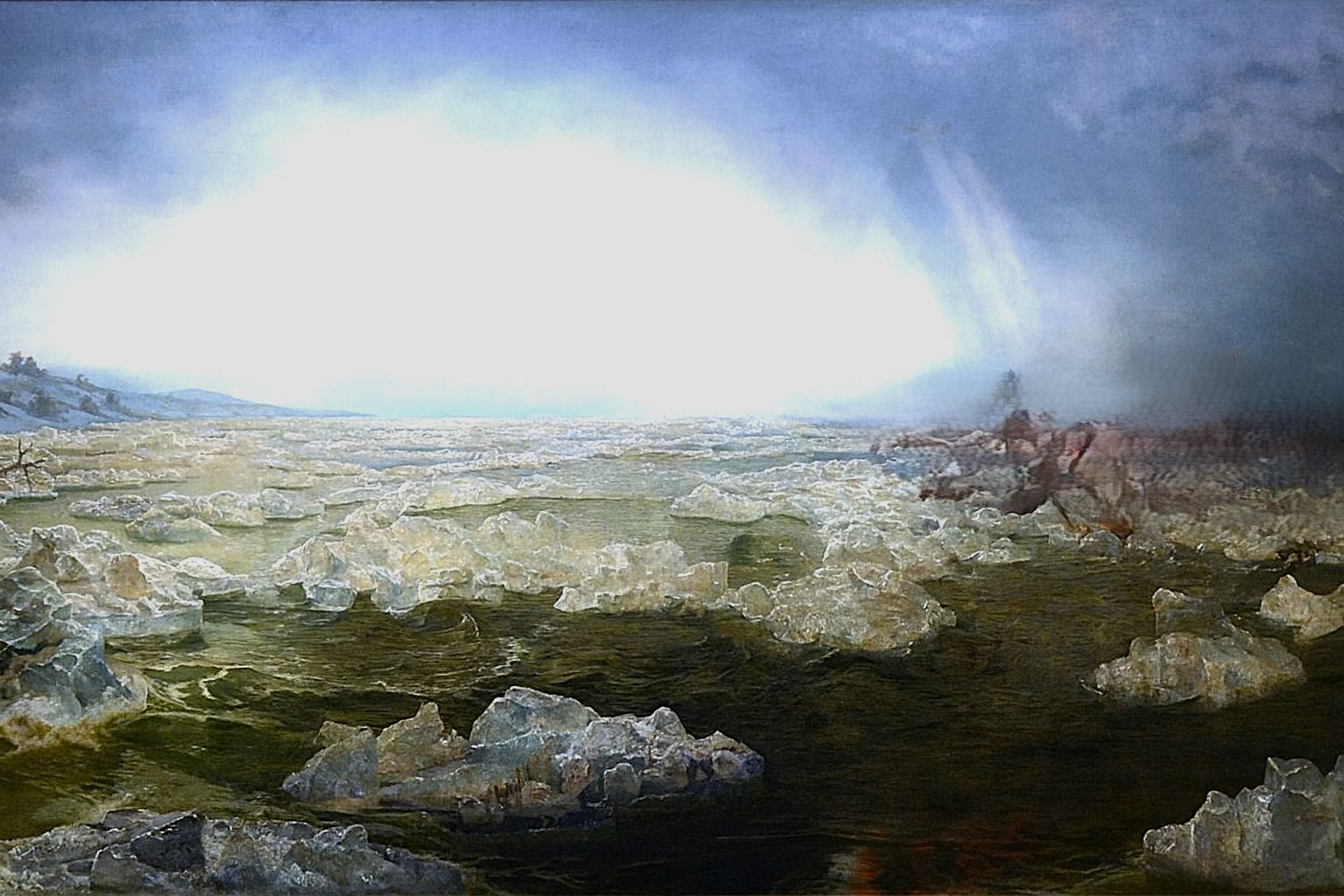
Finally, on the night of December 25, 1776, the war that Lee believed was collapsing exploded back to life. While Lee sat in British custody, Washington crossed the Delaware with about 2400 men in the main striking force, and the former Lee division under Sullivan made up a large share of the troops Washington now had available, alongside other arriving units and men detailed away to guard ferries and supplies. That surprise attack on Trenton the next morning became the first major American victory of the Revolution and revived a cause that many believed was finished. The triumph at Trenton proved that the American army was still alive, and it marked the beginning of the remarkable turnaround that would define the winter campaign.
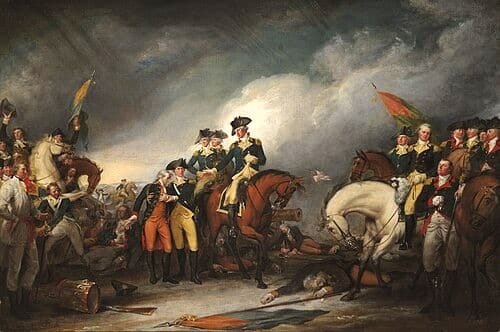
In the end, if General Lee wasn’t captured in Basking Ridge, Lee’s troops may have never made it to cross the Delware and take Trenton, and the war most likely would have ended the American Dream
Our Widow White’s History Series
Next time you’re traveling in the Basking Ridge area, stop by the signpost on the corner of Cedar Avenue and South Finley Avenue and remember the moment when Basking Ridge’s history changed the world forever. Our Widow White’s Research Series
New Jersey Rev War Series Mr. Local History Project
Views: 11,232 New Jersey is known as the “Cockpit of the American Revolution” for a reason – because it was. More battles, more encampments, more strategies took place in New Jersey than in any other colony of the original thirteen.…
What Might Have Happened if General Lee Wasn’t Captured in Basking Ridge
Views: 403 In December 1776 the American rebellion was close to collapse. The Continental Army was shrinking as enlistments expired and morale sank to its lowest point of the war. British forces held New York and expected the uprising to…
Insights: General Charles Lee’s Capture at Widow White’s Tavern in Basking Ridge & Washington’s Delaware Crossing Impact
Views: 2,012 December 13, 1776, stands as the most electrifying day in Basking Ridge’s history, when the sleepy colonial crossroads suddenly became the center of the Revolution. At dawn, the infamous capture of General Charles Lee sent shockwaves through Washington’s…
John Morton – General Washington’s Rebel Banker Stashed in Basking Ridge
Views: 7,469 John Morton was a Colonel in the Continental Army. Still, he relinquished his commission in 1761 to become a highly successful merchant, specializing in the trade of flax from his native Ulster in Northern Ireland, thereby supporting the…
Widow White’s Tavern in Basking Ridge was More Than a Grog Stop
Views: 27,658 Basking Ridge, New Jersey’s Most Famous Incident Yes, this historic event made the series, so look for it. The episode covering that timeframe is Episode 3: “The Times That Try Men’s Souls (July 1776 – January 1777)” about…
Widow White – Mary Jarvis Whitaker Brown White
Views: 1,259 This is a story about a widow, a General, and a War for Independence. For over a decade, I’ve been researching the story behind the 1776 capture of one of General Washington’s head generals, but I never really…
Widow White’s Tavern Series – A Basking Ridge American History Moment
Views: 569 December 13, 1776, stands as the most electrifying day in Basking Ridge’s history, when the sleepy colonial crossroads suddenly became the center of the Revolution. At dawn, the infamous capture of General Charles Lee sent shockwaves through Washington’s…
Widow White’s Tavern 7th Wooden Historic Village Keepsake
Views: 6,376 Be part of the Widow White’s Tavern limited edition run. Mr Local History is proud to announce the release of the 7th in the collectible series, the infamous 1776 Widow White’s Tavern in the village of Basking Ridge.…
Three Historic Moments That Changed Basking Ridge & America
Views: 12,362 On the internet, we’ve created the #3LOCALHISTORYEVENTCHALLENGE, where you share your town’s three most historic events. As the historian for Bernards Township, representing Bernards Towns#hip and its four hamlets is a great honor. We’re always looking for ways…
What Happened to Mary White and Widow White’s Tavern – Research Notepad
Views: 27,425 Below are the original research notes as I had spent years researching contradicting information on the Widow White’s Tavern in Basking Ridge, New Jersey. Often I like to post research in hopes that other researchers can see what’s…
